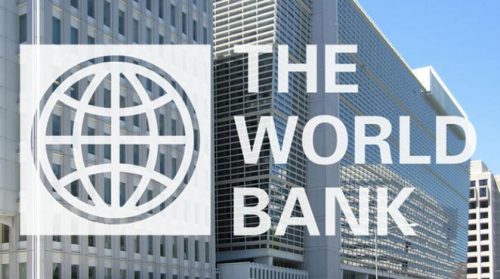Nigeria’s external reserves are expected to decline, according to the World Bank, because the Central Bank of Nigeria (CBN) is expected to clear $1.7 billion in foreign exchange backlog and forward contracts to foreigners by the end of October 2022.
The World Bank revealed this in a report called “Nigeria Development Update (June 2022): The Continuing Urgency of Business Unusual.”
Nigeria’s external debt had been falling due to the Central Bank’s ongoing intervention in the foreign exchange market to maintain the local currency’s stability.
The World Bank’s Position
“Boosted by higher oil exports, an allocation of Special Drawing Rights from the International Monetary Fund in August 2021, and a Eurobond issuance in September 2021, gross official reserves rose to US$41.3 billion (7.4 months of imports) at the end of 2021;offering an opportunity for exchange rate adjustment,” the World Bank said.
“In March 2022, Nigeria issued additional Eurobonds worth $1.25 billion. The CBN is expected to clear the FX backlog to foreigners (estimated at US$1.7 billion as of end-October) and FX forward contracts, so gross FX reserves are expected to decline in 2022,” according to the Bank.
Read also: insecurity: Archbishop Chukwuma calls for revolution, Buhari’s resignation
Nigeria will also see net portfolio outflows in 2022, according to the World, due to the hawkish monetary policy seen in developed countries. “FPI inflows increased significantly in 2021, exceeding US$6 billion,” according to the bank (1.4 percent of GDP). This followed a significant drop in 2020, when net outflows totaled US$3.6 billion as a result of the COVID-19 pandemic (0.8 percent of GDP).
“With continued hikes in interest rates in the US and other advanced economies due to rising inflation, net portfolio inflows to Nigeria are expected to drop below 1% of GDP in 2022,” according to the World Bank. The uncertainty surrounding the election is likely to add to portfolio investors’ apprehension, keeping net inflows low.”
What you should understand
Foreign reserves are assets held on deposit by a country’s central bank to back liabilities and influence monetary policy. Foreign banknotes, deposits, bonds, treasury bills, and other foreign government securities are all examples.
These assets are held for a variety of reasons, but the most important is to ensure that a government or its agency has backup funds in the event that their national currency depreciates rapidly. The term “foreign exchange reserves” is also used to refer to “international” or “external” reserves.
Read Also: Atiku’s former aide Afegbua abandons PDP, explains his reasons
Nigeria’s external reserve increased by $5.15 billion in 2021, thanks to a $4 billion Eurobond issued by the federal government in September 2021 and a $3.35 billion IMF facility under the Special Drawing Rights. Nigeria’s external reserves, however, are currently at $38.69 billion, down from $41 billion last year.
According to NBS data, capital imports to Nigeria decreased by 47.6% year on year in the first nine months of 2021, to $4.52 billion from $8.61 billion the previous year, with foreign direct investment (FDI) accounting for only 7.55 percent of the total.


